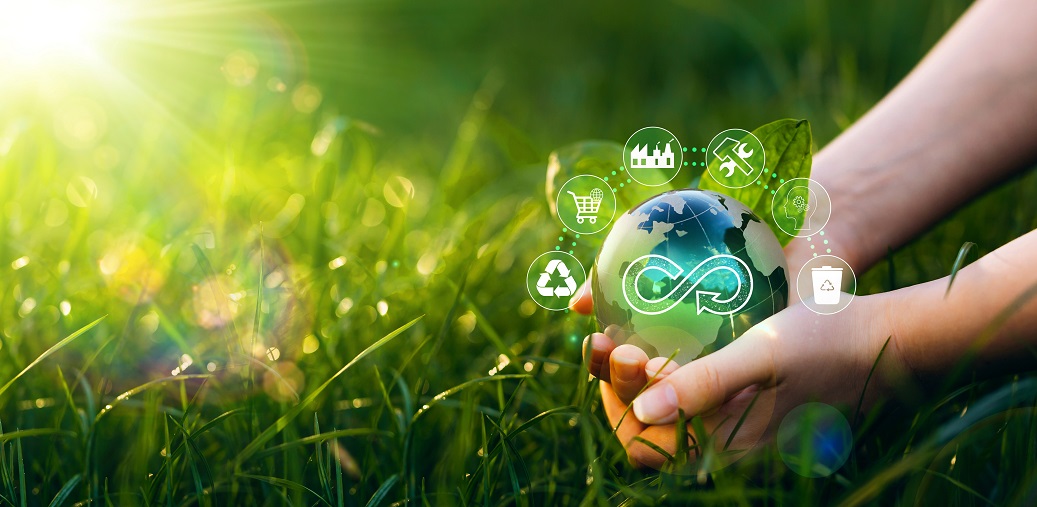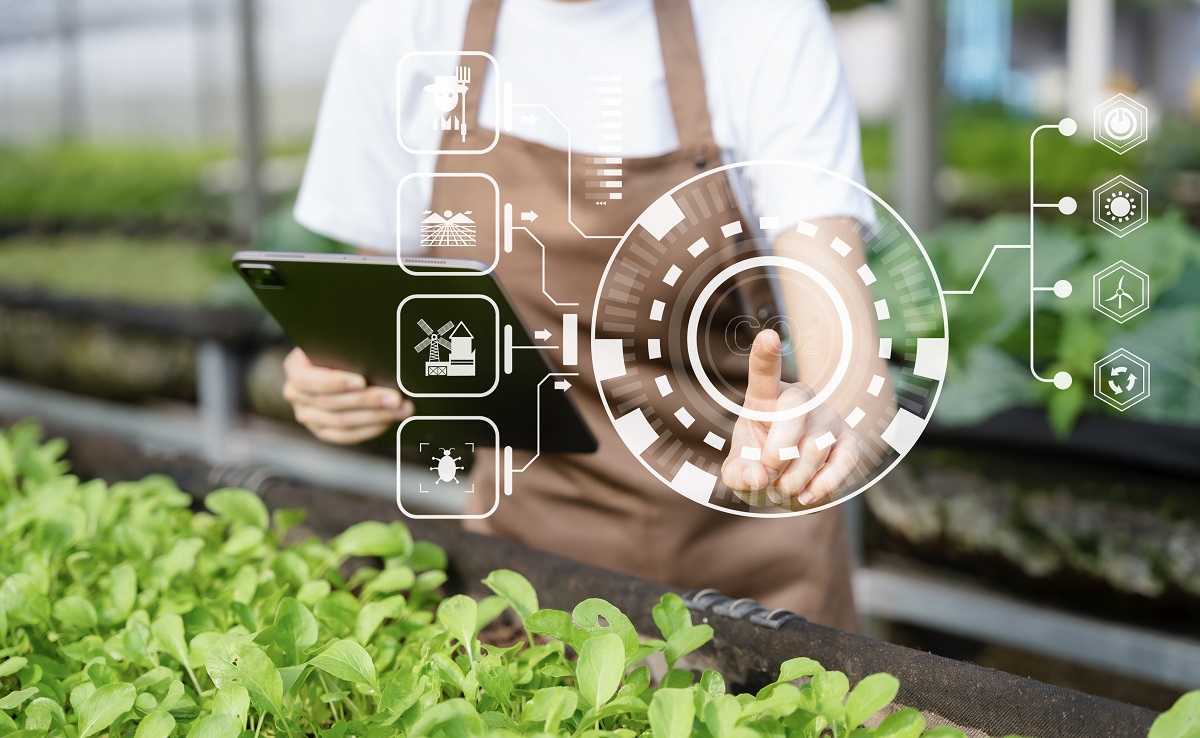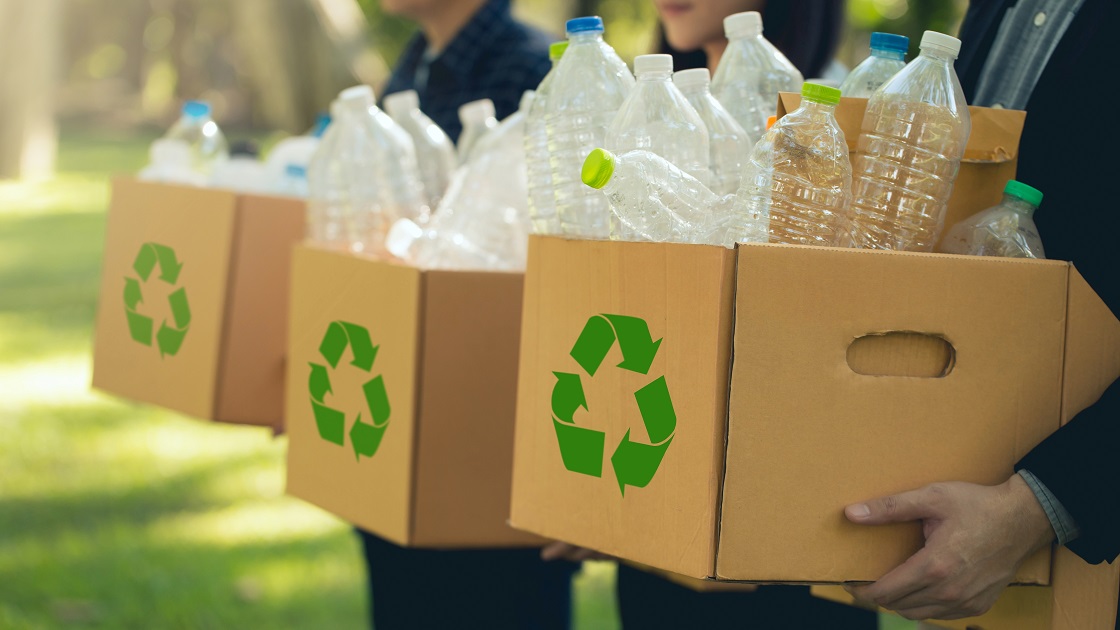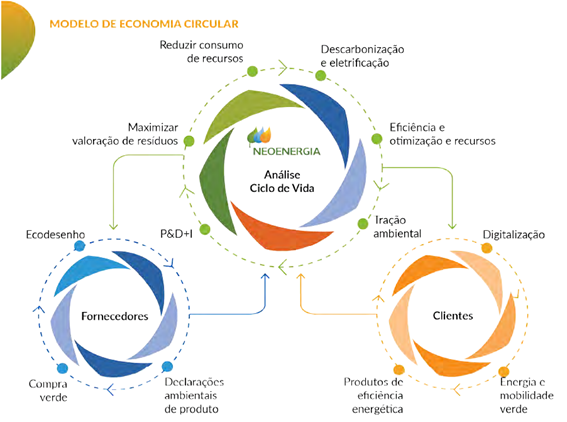
Circular Economy
Learn what the circular economy is, learn its principles, and understand the benefits of long-term economic practices.
Circular Economy: what it is and what are its principles
With the increasingly attentive eyes of authorities and leaders on initiatives in favor of the environment, in recent years, the circular economy has been gaining strength and is an essential part of several industrial projects.

How did the circular economy appear
In 1989, the circular economy came to the fore with the release of the book “Economics of Natural Resources” by David W. Pearce and R. Kerry Turner, British environmentalists and economists. The term was first mentioned in this publication, which describes it as a counterpoint to the linear economy model.What are the benefits and main impacts of the circular economy?
As a model focused on increasing efficiency in the supply chain, reducing the quantity of materials, and maintaining the value of products, companies are increasingly adopting effective reuse, repair, and recycling practices. And we already know that the impacts are great, such as the reduction of air, soil, and water pollution.According to a survey released in 2023, conducted by the logistics company CHEP, Brazilians in Latin America are the most optimistic about the circular economy and are the ones that most adopt sustainable practices related to the topic. The survey reported that 77% of people in Brazil donate items they don't use, such as clothes and toys, 68% are in the habit of recycling and 54% of repairing objects.
The short-term benefits and long-term strategic opportunities for companies that adhere to the concept are many:
- Improving the image for consumers, employees and society as a whole, being recognized as responsible organizations that care for the well-being of the planet;
- Valuation of good practices, increasing competitiveness vis-a-vis other companies in the same sector;
- Cost reduction;
- Increased operational efficiency;
- Opportunity to generate new business;
- Better customer relationship.
What are the three principles of the circular economy?
The establishment of a circular economy model occurs in two cycles: the biological and the technical. The biological cycle is the basis of consumption and is responsible for recapaciting the raw materials used in company productions, allowing them to reintegrate with the environment after their use. The technical cycle is reserved for the restoration of products already used, through reuse, repair and recycling.At its base, the concept of the circular economy is based on three basic principles:
1. Eliminate waste and pollution at the base of production
It consists of ways of thinking about and questioning the supply chain, in order to avoid the excessive generation of waste and pollution. Actions must be applied from the conception of the product or service, considering all stages of the process, to avoid waste, leftovers, pollution and reduce waste.
2. Keep products and raw materials in use cycles
The circular economy is a way of “recalculating” the route, considering actions that do not make intensive use of finite resources. Its objective is to reuse or recycle products whenever possible. Thus, this principle indicates that all material should be used as far as possible.
3. Regenerate nature
Sustainable actions contribute to the recovery of the ecosystem. In company processes, when continuous and planned, they achieve a balance between the production of inputs and the preservation of the environment. Regeneration allows organizations to return environmental resources.
How to implement the circular economy?
Although companies have the greatest impact on the environment, it is very important that each individual also plays their part and adopts circular economy practices.Understanding how the concept works, understanding the importance of renewable resources and the use of materials to reduce waste disposal is the main point for effecting the circular economy.
In companies, to implement the system, some factors must be considered:
• Preference to recyclable and reusable inputs;
• Creation of sustainable projects;
• Strengthening education and environmental awareness for all;
• Development of long-term solutions;
In everyday life, society can also help with very simple routine actions:
Circular economy and sustainability
The circular economy adapts manufacturing and consumption processes within a cyclical logic, extending the useful life of products, a dynamic that is directly linked to sustainability.As practical examples, in the circular economy, instead of throwing away a plastic container, it is recommended to redirect it to a new position/use, which can be reused to store another liquid or send it for recycling, without polluting the environment. This type of initiative, on a large scale, promotes high sustainability gains.

What is the difference between circular economy and linear economy?
Unlike the circular economy, which seeks to reduce environmental impact, using resources to the limit and extending the useful life of products, the linear economy is based on the consumption of resources and the production of waste, following the line of extracting, producing and discarding.The linear production and consumption model is the one that has been predominant for centuries and has mass production as its central objective. To this end, the extraction of raw materials takes place on a large scale, resulting in profound environmental damage.
Neoenergy: circular economy as an opportunity for a sustainable model
For Neoenergia, the circular economy is a key element for sustainable development and represents an opportunity in the energy transition and in the fight against climate change. The company's sustainable energy model, committed to innovation, decarbonization and electrification of the economy, is directly aligned with the circular economy. This occurs through the reduction of emissions and the consumption of raw materials, the use of renewable resources for energy production, the improvement of efficiency, the optimization of resources, and the maximization of waste reuse.
News
2026-01-29
Neoenergia conquista Prêmio Ibero-Americano de Qualidade pelo desempenho de suas distribuidoras
2026-01-21
Alceu Valença e BaianaSystem se unem em parceria inédita para campanha de segurança na rede elétrica da Neoenergia no Carnaval
2026-01-14
Instituto Neoenergia destina mais de R$ 27 milhões em leis de incentivo para projetos sociais em 2025
2026-01-13
Neoenergia energiza último trecho da linha de transmissão Alto Paranaíba
2025-12-22